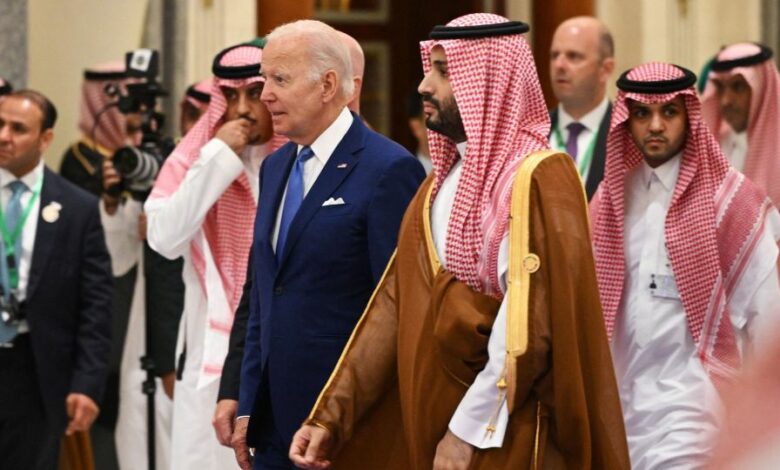
The discussions are ongoing, and it wasn’t clear precisely what the terms of any agreement might look like, if it ever comes to pass.
Ramping up security guarantees for Saudi Arabia would likely face stiff resistance from some members of Congress, who have called on the Biden administration to downgrade Washington’s relationship with Riyadh.
Still, President Joe Biden has placed importance on normalizing ties between Saudi Arabia and Israel, as has Prime Minister Benjamin Netanyahu of Israel, who believe better relations between the two nations could help increase security in the Middle East. Israel and Saudi Arabia have been cultivating unofficial ties for several years, though remain without official diplomatic relations.
“The better the relations between Israel and their Arab neighbors, the better for everybody,” Biden said Friday at the end of a speech about the economy.
Israel has already secured diplomatic agreements with other Arab nations, including Morocco, Bahrain and the United Arab Emirates. The Abraham Accords were a signature achievement of the Trump administration and Biden has vowed to build upon them, particularly as Iran’s nuclear program advances.
A spokesman for the US National Security Council declined to confirm Saudi Arabia was seeking security guarantees from the US, which were reported earlier by the Wall Street Journal.
Instead, John Kirby, the strategic communications coordinator at the NSC, pointed to accomplishments Biden secured when he visited Israel and Saudi Arabia over the summer.
“The President’s trip to the region accomplished a lot,” said Kirby, citing an agreement on contested Red Sea islands and a recent announcement by Oman it would allow Israeli overflights.
“We’re going to keep that diplomacy going,” he said.
The State Department did not reply to a request for comment. The Israeli Embassy in Washington had no comment.
The consequences of a US-brokered agreement between Israel and Saudi Arabia could be widespread. It would throw into doubt the future of the conflict between Israel and the Palestinians, which has seen renewed violence in recent weeks under Israel’s right-wing government.
US officials also believe normalizing relations would provide heft to a regional counterweight against Iran, which has advanced its nuclear enrichment over the last year.
Last year, Biden promised Saudi Arabia would suffer “consequences” after the Saudi-led OPEC+ oil cartel unexpectedly announced it would cut production, though the Biden administration has no plans to take proactive steps to punish – let alone significantly reorient its posture toward – the oil-rich Middle East kingdom.
On Friday, Saudi Arabia and Iran announced that they had agreed to reestablish diplomatic ties after seven years of hostility, in a deal between regional archrivals that could have wide-ranging implications for the Middle East.
Riyadh and Tehran plan to reopen their embassies in an agreement mediated by China, a joint statement by Saudi Arabia and Iran said on Friday.
Kirby said Saudi officials had kept the White House informed on the talks as they progressed. But he downplayed Beijing’s role in brokering the agreement, saying the roadmap to reestablishing ties also included talks in Iraq and Oman.




